Newsletter December 2018
 ICRH Global Newsletter ICRH Global Newsletter 20th of December, 2018
|
Message from the Chair Prof. Dr. Marleen Temmerman |
| PROJECTS |
| New partnership between ICRH-Mozambique ant IOM on SRH of migrant populations ICRH-Mozambique has recently started a partnership with the International Org 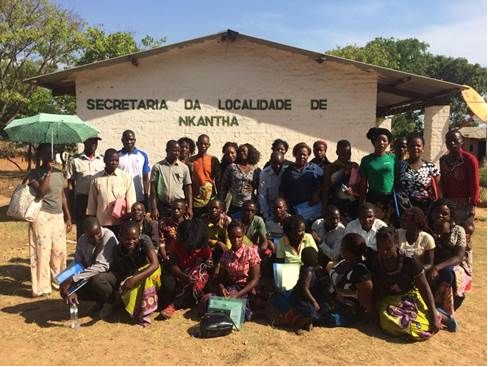 anisation for Migration (IOM), supporting their activities in Tete province. anisation for Migration (IOM), supporting their activities in Tete province. Initially this will involve strengthening work with sex workers in migrant communities along border areas and around informal gold mines, as well as providing HIV/SRH information and services to returnees who were displaced by conflict. |
| Sexual Violence Measurement study ICRHK and Long-term partner Equality Effect will conduct a study examining the prevalence of sexual violence among minors (12 to 17 years) in four counties in Kenya. The study will complement the work ICRHK has done in SGBV service provision, in partnership with Mombasa County and the Coast General Hospital. Equality effect and ICRHK have partnered from 2016 in the 160 Girls Project, which aimed to educate and empower young boys and girls on their rights to seek help from the police following sexual violence. This sexual violence measurement study aims to provide an estimate of the prevalence of sexual violence among school-going children, and their parents, and to assess the attitude and confidence of the young people and their communities in the police. We also aim to look for changes in specific attitudes or indicators of progress in the communities attitudes towards the police over one year, following a police training exercise to be conducted by the Kenya Police and The Equality Effect organization. The study will be conducted in four Kenyan Counties and will involve at least 1200 participants. |
First results Sexual Assault Care Centres (SACCs) presented in Belgium |
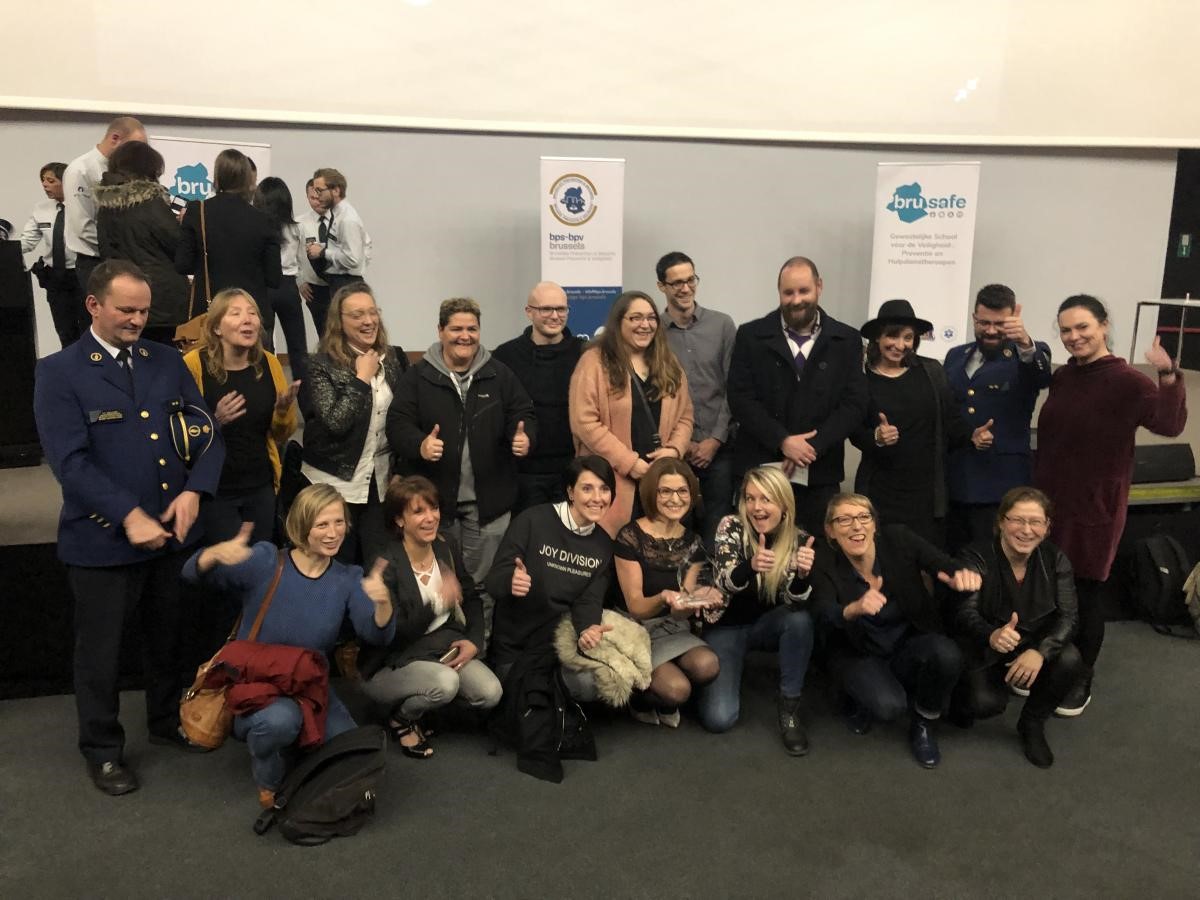 David Yansenne price for the sexual assault care center in Brussels David Yansenne price for the sexual assault care center in BrusselsThe Sexual Assault Care Centre in Brussels, has been awarded the David Yansenne-price on November 27th 2018. Which is awarded annually to a project within the security sector. This is a pilot project, coordinated by ICRH. The movie in French/Dutch can be viewed here: https://youtu.be/e9eEG7DGLXA |
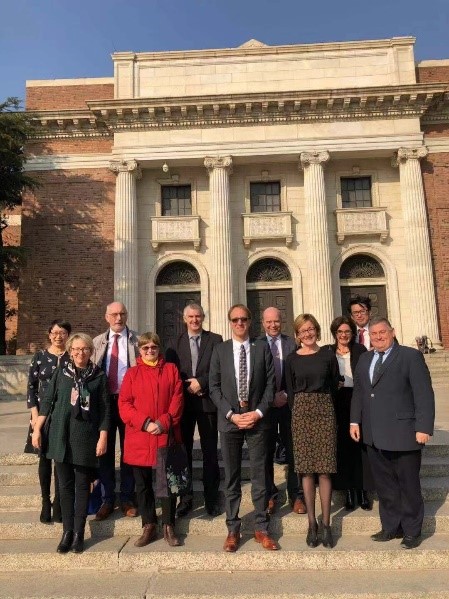 A Ghent University delegation led by the Rector is conducting a mission in China A Ghent University delegation led by the Rector is conducting a mission in ChinaProf. Dr. Rector Rik Van De Walle led a Ghent University delegation to China in November. The delegation visited several collaborative institutions in Beijing and Shanghai, including the Tsinghua University and Beijing University, both close partners of ICRH in the ANSER Network. ICRH’s member, Prof. Wei-Hong Zhang joined the mission on the behalf of the Faculty of Medicine and Health Science to strengthen the collaborations between the institutes. |
| Kenyan adolescents sexual and reproductive health stories portrayed with the support of the Marleen Temmerman Fund The International Centre for Reproductive Health Kenya (ICRHK) won a Marleen Temmmerman Fund grant to develop three short documentaries about the three sexual and reproductive health adolescents programs they are working on. It showcases stories coming out of the’ First Time Young Mothers’ program which aims to improve comprehensive maternal and child health care to adolescent girls and young women, the ‘Gender violence’ programme which has provided care to over 7,000 young survivors of violence; and the ‘Elimika’ project which provides online support for HIV positive adolescents. The documentaries will be developed using a ‘human centred design’. An innovative approach that takes into account end-users preferences in the design, the piloting and the prototyping of product. In this case the videos. Youth focus group discussions will help to identify the approach and write the script and the video production will be done by a group of young people that received training in production and purchased video equipment from ICRHK back in 2016. In the future ICRHK hopes to develop even more. A weekly vlog and a mobile phone application to help inform adolescents about their sexual and reproductive health and rights is on their to do list. |
| PEOPLE |
Vartika Sharma Vartika Sharma successfully defended her PhD on November 7th in Ghent. The topic 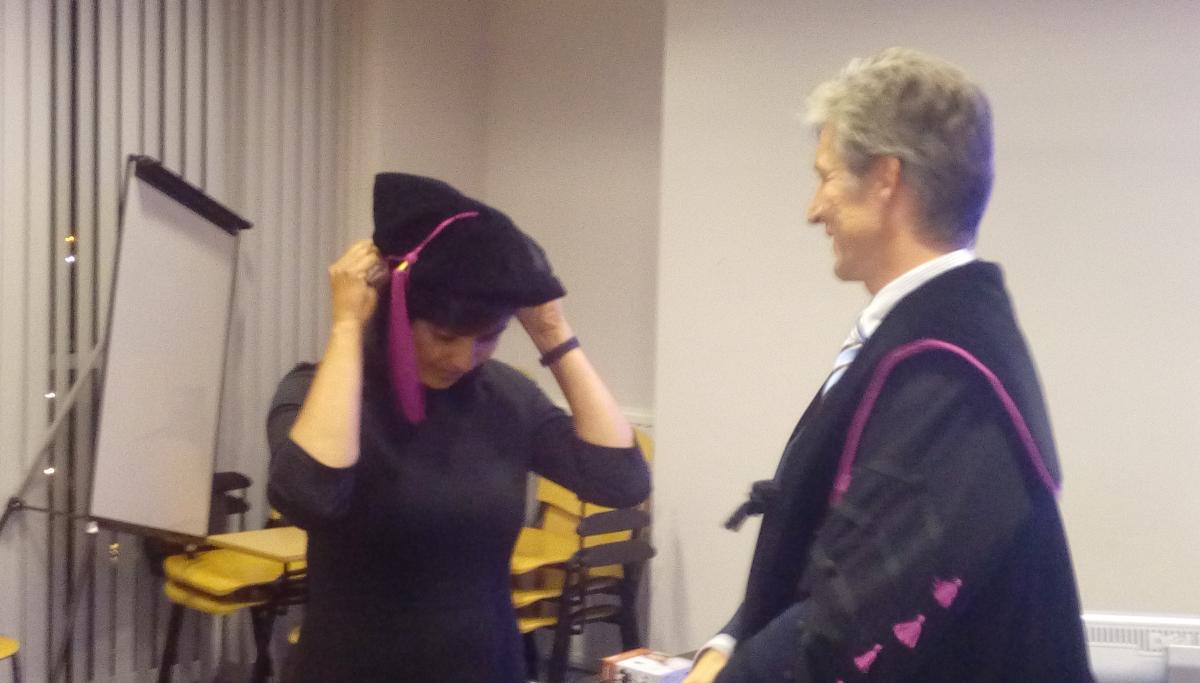 of her doctoral thesis is: Sexual behaviors of people who use drugs and their regular partners: Implications for affected women in Delhi, India. She was supported by her supervisors Prof. Dr. Stanley Lüchters and Prof. Dr. Olivier Degomme. Click here for the link to the thesis of her doctoral thesis is: Sexual behaviors of people who use drugs and their regular partners: Implications for affected women in Delhi, India. She was supported by her supervisors Prof. Dr. Stanley Lüchters and Prof. Dr. Olivier Degomme. Click here for the link to the thesis |
Danielle Yugbare Belemsaga |
| EVENTS |
Building an SRHR research agenda across sectors Conference in Ghent |
| ICRH at the fifth International Conference on Family Planning 2018 The fifth International Conference on Family Planning was held in Kigali, Rwanda from 12-15 November, 2018. Its theme was “Investing for a lifetime of returns”. During this meeting, members of ICRH Kenya staff had one oral presentation and five poster presentations. Prof Peter Gichangi, Principal Investigator Kenya for PMA2020 presented “In search of concorda  nce: A comparison of matched health facility data from the Kenya health information system and PMA Agile for 3 Counties. nce: A comparison of matched health facility data from the Kenya health information system and PMA Agile for 3 Counties.Poster presentations: Mary Thiongo. Missed opportunities for family planning among postpartum women in 11 counties, Kenya. Michael Waithaka. Bridging the gap: unintended pregnancies, fertility behaviors and unmet need for family planning among adolescents and young women in 11 counties in Kenya. Michael Muthamia. Why are clients unable to get their implants removed when they desire? Findings from demand- and supply-side research in Kenya. Jeffrey B. Bingenheimer. They destroy the reproductive System: Exploring the Belief that Modern Contraceptive use causes Infertility in Kilifi, Kenya. Andreea A. Cre 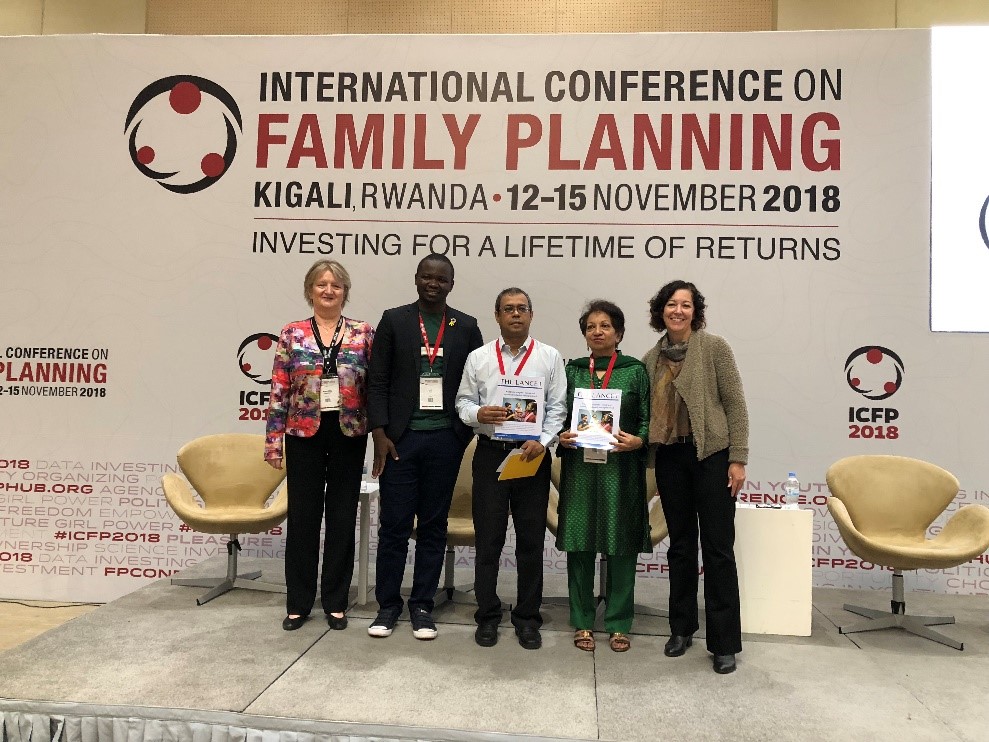 anga. Are family planning, essential drugs and equipment stock-outs less prevalent in facilities offering integrated family planning and maternal health services? anga. Are family planning, essential drugs and equipment stock-outs less prevalent in facilities offering integrated family planning and maternal health services?Prof Marleen Temmerman presented the Guttmacher-Lancet Commission report on Sexual and Reproductive Health. Find here the link to the report |
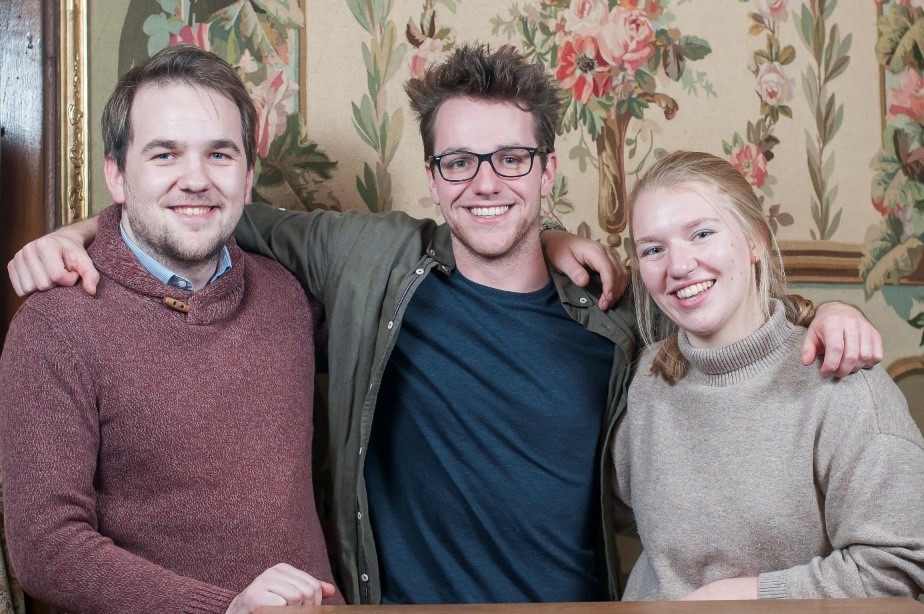 BeMSA Summer School BeMSA Summer SchoolGhent University is hosting two 12-day Summer Programs, from 7-18 July 2019. One on “Reproductive Health & Rights” and the other on “Health & Migration. The deadline for registration is the 15th of February 2019. More information: here |
| FIGO Conference Launch of the Lancet Series on Optimising Caesarean Section Rates Globally, the number of babies born through caesarean se  ction (C-section) almost doubled between 2000 and 2015 -- from 12% to 21% of all births. While the life-saving ction (C-section) almost doubled between 2000 and 2015 -- from 12% to 21% of all births. While the life-saving 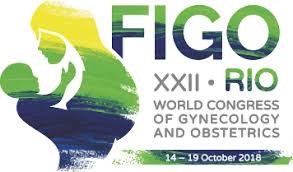 surgery is still unavailable for many women and children in low-income countries and regions, the procedure is overused in many middle- and high-income settings. A call based on a Lancet Series of 3 papers to optimise Caesarean Section rates, coordinated by Prof Marleen Temmerman, was launched at the FIGO Conference in Rio de Janeiro in October 2018 (see publications below) surgery is still unavailable for many women and children in low-income countries and regions, the procedure is overused in many middle- and high-income settings. A call based on a Lancet Series of 3 papers to optimise Caesarean Section rates, coordinated by Prof Marleen Temmerman, was launched at the FIGO Conference in Rio de Janeiro in October 2018 (see publications below) |
PUBLICATIONS |
| Lancet Series; Optimising Caesarean sections • Boerma T, Ronsmans C, Melesse DY, Barros AJD, Barros FC, Juan L, Moller AB, Say L, Hosseinpoor AR, Yi M, de Lyra Rabello Neto D, Temmerman M. Accelerate progress—sexual and reproductive health and rights for all: report of the Guttmacher–Lancet Commission Lancet. 2018 Oct 13;392(10155):1341-1348. doi:10.1016/S0140-6736(18)31928-7. Review. • Sandall J, Tribe RM, Avery L, Mola G, Visser GH, Homer CS, Gibbons D, Kelly NM, Kennedy HP, Kidanto H, Taylor P, Temmerman M. Short-term and long-term effects of caesarean section on the health of women and children. Lancet. 2018 Oct 13;392(10155):1349-1357. doi:10.1016/S0140-6736(18)31930-5. Review. • Betrán AP, Temmerman M, Kingdon C, Mohiddin A, Opiyo N, Torloni MR, Zhang J, Musana O, Wanyonyi SZ, Gülmezoglu AM, Downe S. Interventions to reduce unnecessary caesarean sections in healthy women and babies. Lancet. 2018 Oct 13;392(10155):1358-1368. doi:10.1016/S0140-6736(18)31927-5. Review. |
Mochache V, Lakhani A, El-Busaidy H, Temmerman M, Gichangi P. Correlates of facility-based delivery among women of reproductive age from the Digo community residing in Kwale, Kenya. BMC Res Notes. 2018 Oct 10;11(1):715. doi:10.1186/s13104-018-3818-3. Yugbaré Belemsaga D, Goujon A, Bado A, Kouanda S, Duysburgh E, Temmerman M, Degomme O. Integration of postpartum care into child health and immunization services in Burkina Faso: findings from a cross-sectional study. Reprod Health. 2018 Oct 11;15(1):171. doi:10.1186/s12978-018-0602-8. Temmerman M, Lawn JE. Stillbirths count, but it is now time to count them all. Lancet. September 27, 2018 DOI:https://doi.org/10.1016/S0140-6736(18)32342-0 Depraetere J, Vandeviver C, Vander Beken T, Keygnaert I. Big Boys Don’t Cry: A Critical Interpretive Synthesis of Male Sexual Victimization. Trauma, violence & Abuse https://doi.org/10.1177/1524838018816979 |


 This month, the world is celebrating the 70th anniversary of the Universal Declaration of Human Rights, the day that the United Nations General Assembly adopted, in 1948, the Universal Declaration of Human Rights. Progress has been made but there is still a long way to go to achieve the human rights agenda, in particular for women and children. ICRH is joining the international community and stands up for equality, justice and human dignity. Human rights are at the heart of the Sustainable Development Goals (SDGs), as in the absence of human dignity we cannot drive sustainable development. Human Rights are driven by progress on all SDGs, and the SDGs are driven by advancements on human rights.
This month, the world is celebrating the 70th anniversary of the Universal Declaration of Human Rights, the day that the United Nations General Assembly adopted, in 1948, the Universal Declaration of Human Rights. Progress has been made but there is still a long way to go to achieve the human rights agenda, in particular for women and children. ICRH is joining the international community and stands up for equality, justice and human dignity. Human rights are at the heart of the Sustainable Development Goals (SDGs), as in the absence of human dignity we cannot drive sustainable development. Human Rights are driven by progress on all SDGs, and the SDGs are driven by advancements on human rights.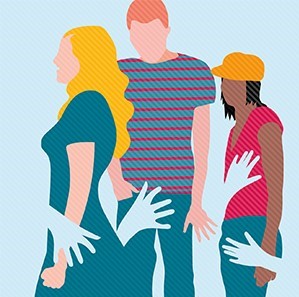 The team of Prof. Ines Keygnaert has been working on the development of Sexual Assault Care Centers (SACCs) in Belgium since 2015. By the end of October 2017, three sexual assault care centres were set up in the university hospitals of Ghent, Brussels and Liège. The SACCs are open 24/7. Forensic nurses and psychologists offer forensic, medical and psychological care to victims of acute sexual violence as well as support to their significant others. Victims who wish to file a complaint can do so at the SACC itself and will be interrogated by trained vice inspectors.
The team of Prof. Ines Keygnaert has been working on the development of Sexual Assault Care Centers (SACCs) in Belgium since 2015. By the end of October 2017, three sexual assault care centres were set up in the university hospitals of Ghent, Brussels and Liège. The SACCs are open 24/7. Forensic nurses and psychologists offer forensic, medical and psychological care to victims of acute sexual violence as well as support to their significant others. Victims who wish to file a complaint can do so at the SACC itself and will be interrogated by trained vice inspectors.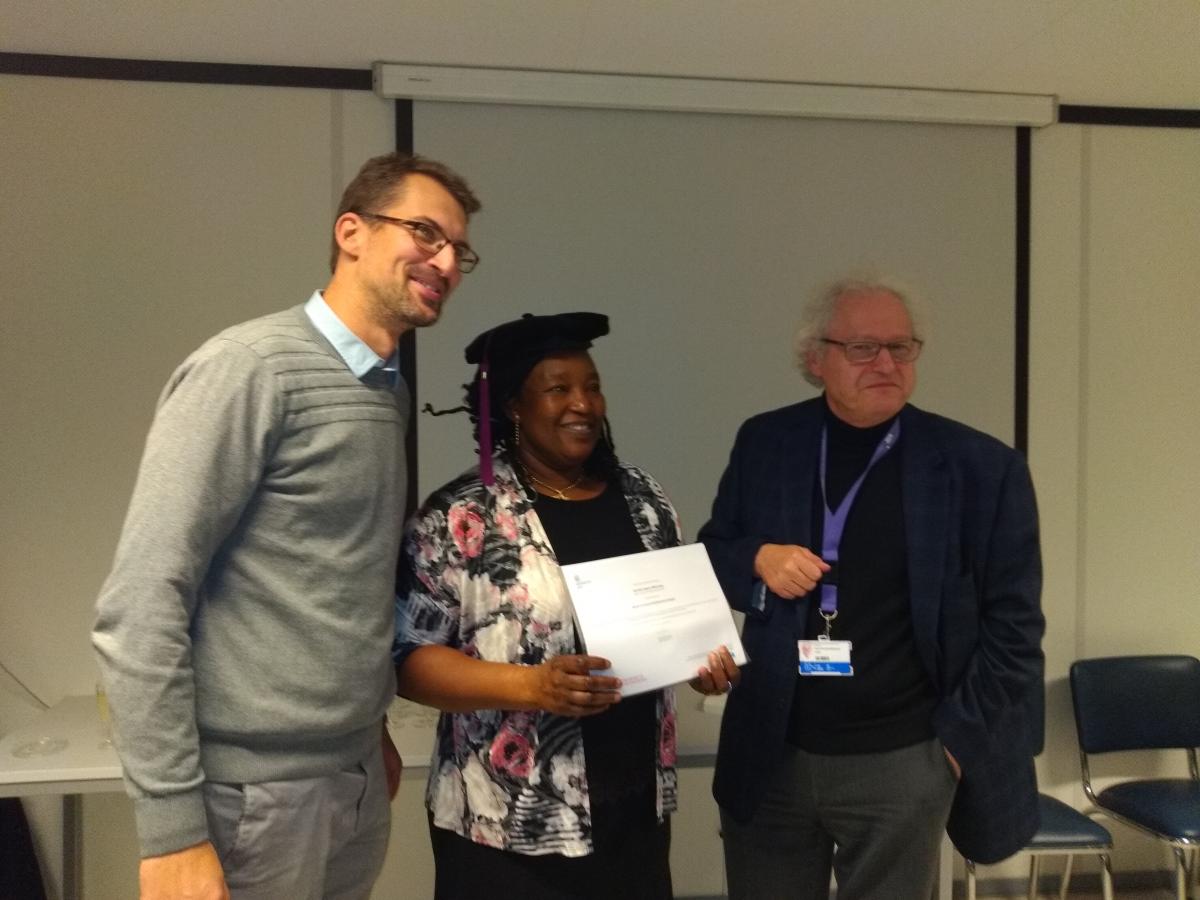
 SRHR is high on the agenda of many policy makers, numerous researchers work on the topic, companies are developing new SRH products and non-governmental and international organisations are implementing projects and programs in this field. While all stakeholders approach SRHR from a different angle, bringing them together may mutually reinforce their work and contribute to improving SRHR globally. The ANSER Network brought together these wide range of stakeholders with the aim of setting a joint SRHR research agenda. Through roundtables and interactive sessions, the participants came up with ideas and recommendations for multi-sectorial policy-oriented R&D proposals and advocacy strategies to promote SRHR. Report of the day can be found
SRHR is high on the agenda of many policy makers, numerous researchers work on the topic, companies are developing new SRH products and non-governmental and international organisations are implementing projects and programs in this field. While all stakeholders approach SRHR from a different angle, bringing them together may mutually reinforce their work and contribute to improving SRHR globally. The ANSER Network brought together these wide range of stakeholders with the aim of setting a joint SRHR research agenda. Through roundtables and interactive sessions, the participants came up with ideas and recommendations for multi-sectorial policy-oriented R&D proposals and advocacy strategies to promote SRHR. Report of the day can be found